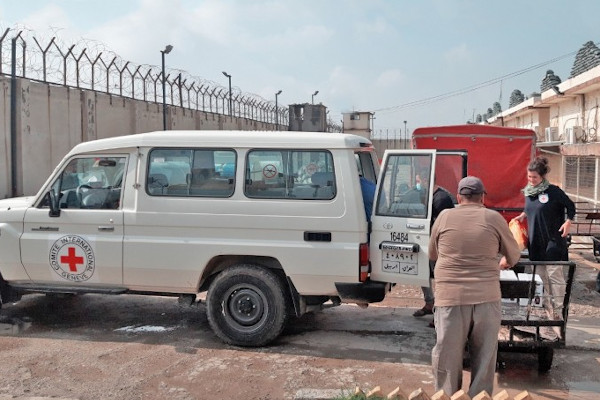
Coronavirus healthcare response in conflict zones - ICRC in Iraq
After the first coronavirus case confirmed in Iraq (24 February 2020) the ICRC continued to provide care. The Red Cross teams are keeping on striving in order to both ensure that its existing humanitarian programs are not jeopardized and adjust responses. Here is how they are providing healthcare response in conflict zones, like in Iraq.
Authorities of Iraq are adopting increasingly stringent measures to avert further spread of the virus. This is ok, but often not enough to be efficient. As the crisis progresses, the ICRC (International Committee of Red Cross) is striving in order to both ensure that its existing humanitarian programs are not jeopardized in the mid to long term and adjust its healthcare response in conflict zones.
Healthcare response in conflict zones, coronavirus situation in Iraq
Iraq as many other conflict zones has a very precarious healthcare system and it is under pressure like never before because of the coronavirus pandemic. In this period Red Cross is recalibrating its support to the Iraqi Red Crescent Society (IRCS), which remains in the lead within the Red Cross and Red Crescent Movement when it comes to complementing the government’s response to health emergencies.
What is ICRC doing in Iraq to support healthcare response to the coronavirus?
In order to help the health structures in this conflict zone (Iraq), the ICRC is supporting the country by the fulfilment of vital functions while limiting exposure risks for both patients and staff. Here is what ICRC is providing in Iraq:
- monthly drug donations to 18 Primary Health Care Centres (PHCCs) and two hospitals
- 18 PHCCs and two hospitals as well as 15 Physical Rehabilitation Centres (PRCs) with soap and disinfectant, personal protective equipment (such as gloves, gowns, and goggles), and non-contact infrared thermometers
- coronavirus awareness and prevention sessions for nearly 500 staff in nine PHCCs and one hospital
- 10 handwashing points installed in seven PHCCs at strategic locations, notably the main entrances
- 23 additional handwashing points are about to be installed in 12 PHCCs, one hospital, and 2 PRCs
Healthcare response in conflict zones, coronavirus in Iraqi jails
Thousands of detainees in Iraq are at high risk of being infected by the coronavirus. Prisoners are a part of the population which is very vulnerable, especially in facilities that may be overcrowded. They may face poor hygiene or lack of ventilation. These are situations that can make start a coronavirus outbreak. Not only coronavirus, but the fear is also that other diseases can come through and coronavirus could sneak inside the jails without problems.
Accordingly, the ICRC provided guidance on preparedness and response measures, through a dialogue with detaining authorities. Very important is to draw on its long-standing expertise in the management of contagious diseases in prisons. ICRC is also keeping on providing support to six prison clinics where projects to improve health care for detainees are ongoing, implemented jointly by the ICRC, the Ministry of Health, and the Iraqi Corrections Service.
ICRC is now donating soap and disinfectant, personal protective equipment (such as gloves, gowns, and goggles), and non-contact infrared thermometers to a total of 45,000 detainees in Iraq.
Lack of safe water for displaced communities. ICRC coronavirus healthcare response in Iraq
Therefore, a serious problem is the healthcare response to displaced communities in conflict zones, like Iraq. Coronavirus does not stop just because there are vulnerable people. So, the ICRC is working hard to give access to clean and safe water to nearly 19,000 people this year. They are now upgrading two additional water supply systems serving 20,000 people. This will ensure an improved sanitary environment and help increase the resilience of this population in the face of the current coronavirus outbreak.


